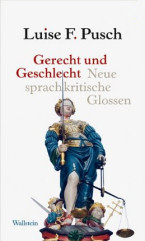
(Emilie Charlotte Le Breton, verh. Langtry)
born 13 October 1852 on Jersey, England
died 12 February 1929 in Monte Carlo, Monaco
Britiish actress
Biography • Literature & Sources
Biography
Initial fame settled upon Lillie Langtry accidentally, thanks to her great beauty and sense of style. Abundant romantic scandals helped spread her renown. But it was Lillie’s own determination, imagination, shrewdness, and independent spirit that cemented her enduring success as an actress and businesswoman throughout most of her life.
Born Emilie Charlotte Le Breton into an Anglican clergy family on the Channel isle of Jersey, Lillie delighted in a physically active childhood. After a disastrous London debut at age 16, she began a plan of cultural and intellectual enrichment. Despite her parents’ objections, at age 20 she impetuously married Edward Langtry, who was far less wealthy than she had imagined, and soon found herself bored and depressed by the inactive lifestyle approved for women of her class.
Lillie was discovered by high society when the Langtrys moved to London in 1875. Wearing a simple black dress and plain hairstyle at a party, Lillie captivated those artists present with her beauty and simplicity. Soon artists were competing for her as a model. She received the nickname “The Jersey Lily” from her portrait painted by John Everett Millais. Photographs and sketches of Lillie, produced by the hundreds, appeared in shop windows, making her an overnight sensation and one of the most popular “Professional Beauties” and trend-setters of the period. Lillie became a regular guest at society events, surrounded by artists, intellectuals, and members of high-society. Although her husband escorted her to such events, their marriage was deteriorating further, as he faded into the background and increasingly turned to alcohol. She soon attracted the attentions of the Prince of Wales, later to become King Edward VII, and became his mistress. Her romantic association with the Prince and other notable society figures only increased Lillie's celebrity. Her friends included Oscar Wilde, Sarah Bernhardt, Prime Minister William Gladstone, and American railroad magnate Diamond Jim Brady.
In March 1881 Lillie gave birth to an illegitimate daughter. As her relationship with the Prince waned, Lillie was suddenly beset by creditors and in need of an income. With characteristic determination, Lillie decided to employ her charms as an actress. She made a successful debut in 1881 in a charity production, then put together her own troupe, which toured the United States in 1882. Often performing in light plays, her roles usually reflected society women of beauty and charm. Lillie never received critical raves for her performances and often severe censure for their risque nature, such as the courtesan she played in The Degenerates. Nevertheless British and American audiences inevitably flocked to see her, attracted by her beauty and fashion, and the ongoing romantic scandals that Lillie never publicly refuted. Lillie once revealed that the secret behind her apparently unchanging fine looks was the habit of daily physical exercise she had developed in her youth. As her theatrical engagements began to bring in huge box office receipts, Lillie also made many other shrewd investments, including real estate in the US and raising race horses in England, so that she soon became one of the wealthiest independent women of her time. Lillie's second marriage, to Hugo de Bathe in 1899, from which she inherited the title Lady de Bathe at the death of his father, was not successful, though she never divorced him. Lillie retired to Monte Carlo, where she died in 1929.
Quote: “Man wears what he pleases, and is guided by only two rules. He dresses for comfort, and to enhance his appearance. woman is entitled to the same privilege, and if society wont give it to her, she must take it for herself. What looks attractive on someone else might be hideous if I wear it, and vice versa. Every woman is entitled to her independence. It is her right to dress conspicuously or modestly, as she chooses. it is her right to ignore the dictates of fashion and dress in a manner that is most becoming to her own character and personality. In these days when woman is being granted the vote everywhere, we hear she is at last man's equal, but she will not achieve true equality until she breaks the chains of fashion's tyranny and strikes out on her own.” Written in her 70s after the end of WWI. (from Noel B. Gerson, Because I Loved Him: The Life and Loves of Lillie Langtry)
Author: Katherine E. Horsley
Literature & Sources
Aronson, Theo. 1988. The King in Love: King Edward VII's Mistresses. Chicago. Harper & Row.
Gerson, Noel B. 1971. Because I Loved Him: The Life and Loves of Lillie Langtry. New York. Morrow.
Langtry, Lillie. 1925. The Days I Knew: Memoirs.
If you hold the rights to one or more of the images on this page and object to its/their appearance here, please contact Fembio.



